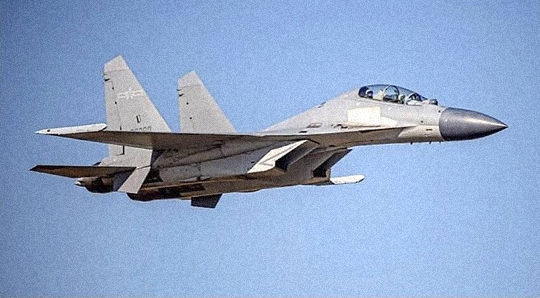
At least for months, the stories about China and the Taiwan Strait have read as if the news desks were running the same wire copy over and over. But it’s not a boring story if you’re living in Taiwan and wondering what the Chinese Communist Party will do if the January 13, 2024 presidential and parliamentary elections don’t go its way—or what it will do if the elections do go its way.
According to a Christmas Eve report in Al Jazeera (December 23, 2023):
Taiwan has reported spotting Chinese warships around the island and aircraft crossing the Taiwan Strait’s sensitive median line weeks before elections in the democratically governed nation.
On Saturday, the Ministry of Defence said in a post on X [Twitter] that since 1:30pm (05:30 GMT) it had detected J-10, J-11 and J-16 fighters as well as early warning Chinese aircraft operating in the airspace to the north, middle and southwest of Taiwan….
Earlier this month, the defence ministry also spotted warships and a balloon near the island at night. While Beijing has been sending warplanes and vessels around Taiwan on a near-daily basis, nighttime activity by Chinese aircraft and the appearance of a balloon are rare.
Democratically governed Taiwan, which China claims as its own territory, has complained for years of regular Chinese military patrols and drills near the island.
The top electoral issue in Taiwan is whether to appease China with respect to its ambitions for Taiwan. China is eager to convert the country into a PRC province. The Chinese government says it prefers to annex Taiwan peacefully but is willing to go to war over the matter.
Taiwan’s Democratic Progressive Party, the anti-appeasement party, is currently leading in the polls. The DPP’s presidential candidate is Vice President Lai Ching-te; his running mate is Hsiao Bi-khim. China wants the other guys, Kuomintang candidates Hou Yu-ih and Jaw Shaw-kong, to win.
Also see:
StopTheChinazis.org: Taiwan’s Independent History
“[In Forbidden Nation: A History of Taiwan] Manthorpe illustrates an important point about American foreign policy—which is that values always do matter, however little foreign-policy practitioners may like it. Taiwan’s transition to democracy in the 1980s and 1990s transformed the US-Taiwan relationship. The US might well have abandoned an authoritarian Taiwan to the mainland. It came close to doing so in 1949-1950, and again in 1971-1978. It cannot and will not abandon a democratic Taiwan.”—David Frum





